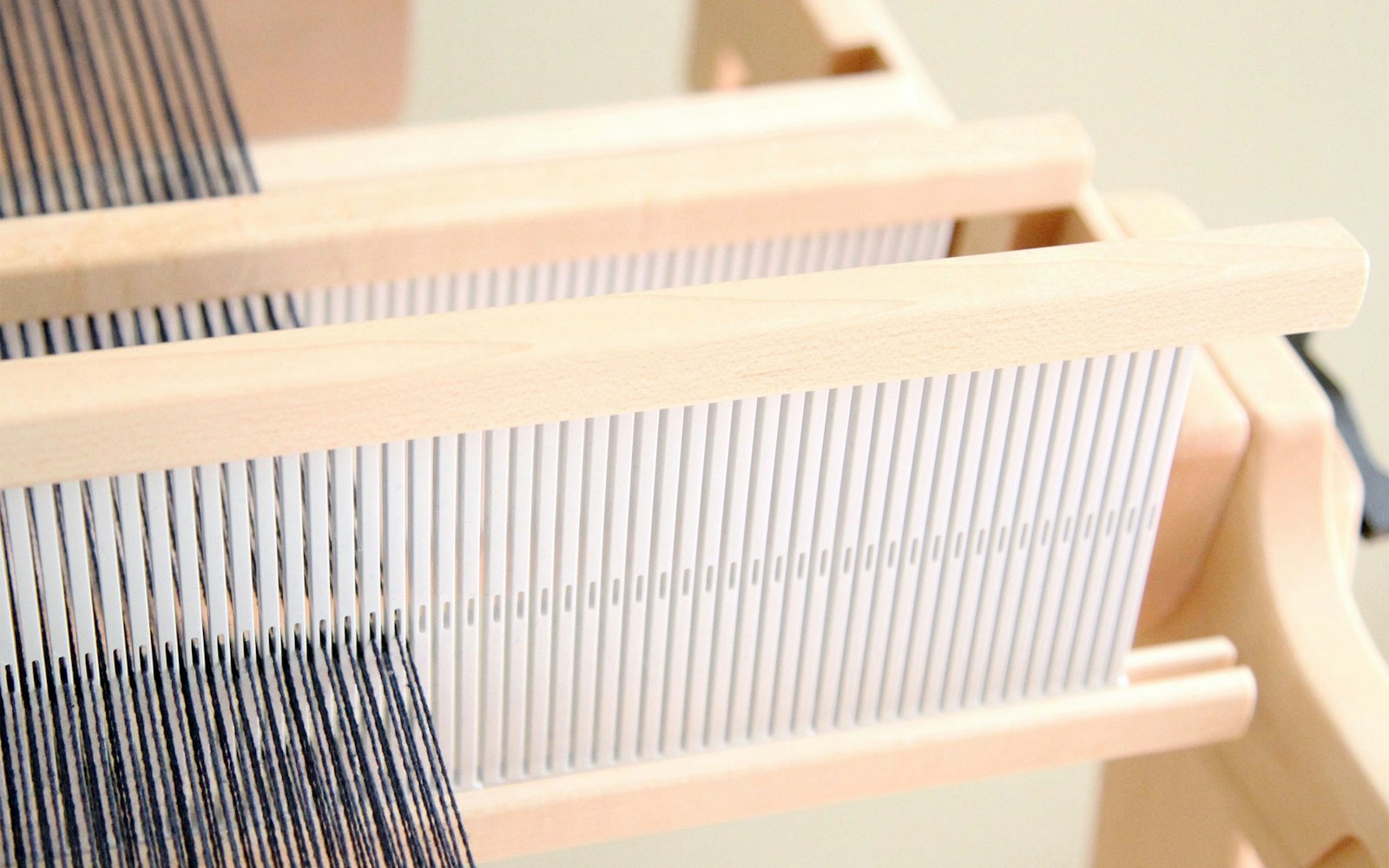Contents
 Using a second heddle on your rigid-heddle loom can open up a whole new world of weaving possibilities. With a second heddle, you suddenly have a third shed beyond up heddle and down heddle, and you can weave more complex patterns—including krokbragd and doubleweave—without a pick-up stick or string heddles. Just as exciting, you can use a second heddle to double your warp sett, meaning you can use finer yarns. If this sounds enticing, but you don’t know where to start, we have you covered!
Using a second heddle on your rigid-heddle loom can open up a whole new world of weaving possibilities. With a second heddle, you suddenly have a third shed beyond up heddle and down heddle, and you can weave more complex patterns—including krokbragd and doubleweave—without a pick-up stick or string heddles. Just as exciting, you can use a second heddle to double your warp sett, meaning you can use finer yarns. If this sounds enticing, but you don’t know where to start, we have you covered!
Today’s skill guide will give you a solid foundation. As you read, you’ll learn about:
- Equipment and yarn considerations
- How to warp for two heddles
- Important terms you'll see in double-heddle patterns
- Tips for weaving and an easy pattern to try
- Projects and more!
Every item we’ve selected for this guide is part of your All Access program and will help you get the most out of your subscription. Check out the Little Looms Library and our video course website for more learning opportunities.
Happy Weaving,
Christina
Advantages of Weaving with Two Heddles
Adapted from an article by Liz Gipson
Weaving with two heddles allows you opportunities that aren’t available with one heddle, including:
- You can weave finer fabrics
- You can weave smaller floats
- You can weave a wider variety of patterns
- You can weave cloth that is twice the width of your loom
This makes more floor loom structures available to the rigid-heddle weaver, including two very important structures—doubleweave and a simple 1/3 twill. These weave structures require more individual control over the threads than what a single heddle and pick-up stick can offer. Adding a second heddle allows you to more closely imitate a floor loom without sacrificing the benefits of rigid-heddle weaving, such as portability, affordability, and knitting-yarn-friendly nature.
 A sampler of double-heddle weaving from Liz Gipson's video course, Twice as Nice . Photo by George Boe
A sampler of double-heddle weaving from Liz Gipson's video course, Twice as Nice . Photo by George Boe
Setting Up Two Heddles
Adapted from an article by Sienna Bosch
Let’s start by learning a little about equipment and materials. Then, we’ll jump into warping your loom and explain how to weave using this setup.

